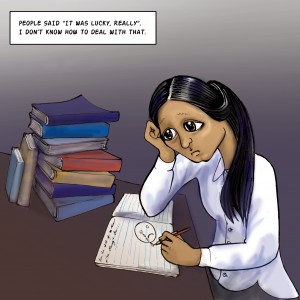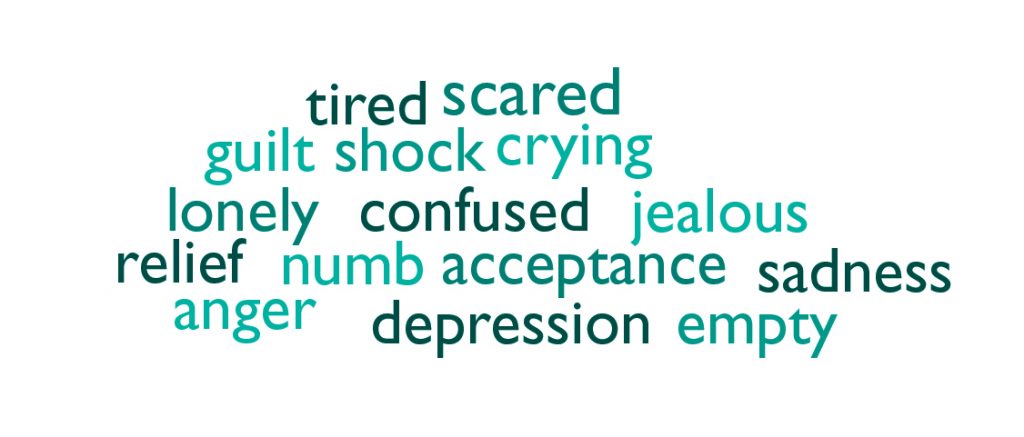Young people
It doesn’t matter how old you are, having a miscarriage, ectopic or molar pregnancy can be a very upsetting and lonely experience.
Young people and pregnancy loss

You and your partner might have been trying for a baby or your pregnancy might have been unplanned. Either way, it can be a confusing and sad time.
We hope the information on our website will help you whatever your age. But some of you told us that young people’s voices were not being heard and your needs were not being met, so this page is for you.
We have written as if we are talking to the person who was physically pregnant, but we hope the information and support will be helpful to partners, family and friends too.
Miscarriage leaflet for young people
Our leaflet explains more about what has happened, where you can find support and how to start making sense of your feelings. We talk about:
- the facts about miscarriage, ectopic and molar pregnancy,
- miscarriage after an unplanned pregnancy and how that might affect you,
- who you might talk to for support,
- your rights at work,
- dealing with difficult reactions,
- remembering your baby and
- where to find support.
Your feelings
There’s no ‘right’ way to feel after a miscarriage. Different people react in different ways. Some people feel better quickly and others find it takes a long time.
Everyone’s feelings are different but the young people we spoke to said they had some of these feelings:


You’re not alone
You can hear from other young people who told us about what they found hard and what helped them. Watch* and read some of their stories here:
Holly was 18 when she had a miscarriage. Her ex-boyfriend blamed her. You can read Holly’s story here too.
Kathy was 15 when she miscarried. Although her family knew, no one ever spoke of it again and she felt very much alone.
Sara was considering an abortion when she miscarried. She talks about her feelings of guilt and loss.
Zoe had a miscarriage at 18. Now 25, she reflects on her experience, and how she found support that helped her through.
Kirstie tells the story of the late loss of her son Jacob when she was 15.
Letti tells us how she coped with miscarrying twins when she was 25.
Lauren had her first miscarriage when she was 20 and another 2½ years later.
Sophie didn’t tell anyone when she got pregnant at 16, nearly 10 years ago. She writes about how she dealt with a miscarriage by herself.
Amelia hadn’t yet realised she was pregnant when she had a miscarriage at 16.
* Some of the filmed stories are voiced by actors as the young people who talked to us didn’t want to be filmed.
Finding support
Our How we help page is full of numbers and links. We offer online information and support, Facebook support groups, live chat and a helpline. You can also join support groups face to face or on Zoom.
We know that calling a helpline can feel weird or scary. Our infographic explains what to expect when you pick up the phone.
Talking about miscarriage
Having a miscarriage can be a lonely experience. Talking to your boyfriend or girlfriend, your parents, your friends or your teachers can help.
I was terrified of telling my parents as I knew they would be angry. It was a hard conversation but in the end it helped that they knew.
You’ll find some suggestions here that might help make talking easier.
Billie helped Holly to talk about her miscarriage.

